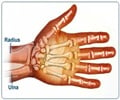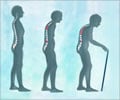Dietary Habits
The womenfolk since time immemorial have neglected their diet and have given precedence to that of the family. This approach is the main cause of osteoporosis. Therefore keeping a close check on the diet will help to a large extent.
Points to be noted
- Milk and milk products should be consumed on a regular basis like low-fat and fat-free milk, yogurt and cheese.
- Foods like sesame seeds, ragi, jowar and kelp should be consumed for a high intake of calcium.
- Fresh fruits and vegetables should make up a sizeable portion of the diet. Broccoli, dried figs, Dry roasted almonds
- Products like calcium fortified milk, calcium fortified juices, mineral fortified flakes, health drinks and calcium rich cereals should also be included in the diet.
- Carbonated drinks should be avoided as they increase the risk for bone fractures in people with low bone density.
- Include nuts, seeds, or legumes (dried beans or peas) daily.
The diet should be low in sodium. A 2003 study also reported that it might help protect bones and improve cholesterol levels. This diet is not only rich in important nutrients and fibre but also includes foods that contain far more potassium, calcium, and magnesium.
Avoid saturated fat (although include calcium-rich dairy products that are no- or low-fat). When choosing fats, select monounsaturated oils, such as olive or canola oils.
Choose protein preferably from fish, poultry, or soy products. Oily fish may also be particularly beneficial. They contain omega-3 fatty acids, which have been associated with heart and nerve protection.
A 2002 study suggested that drinking tea regularly may help protect bones. Nevertheless, there has been some concern that caffeine consumption, particularly from coffee, may increase calcium levels in urine and reduce levels in the body. In one trial, consumption of lots of coffee, nine or more cups per day, was associated with an increased risk of hip fractures in women, but not in men.











